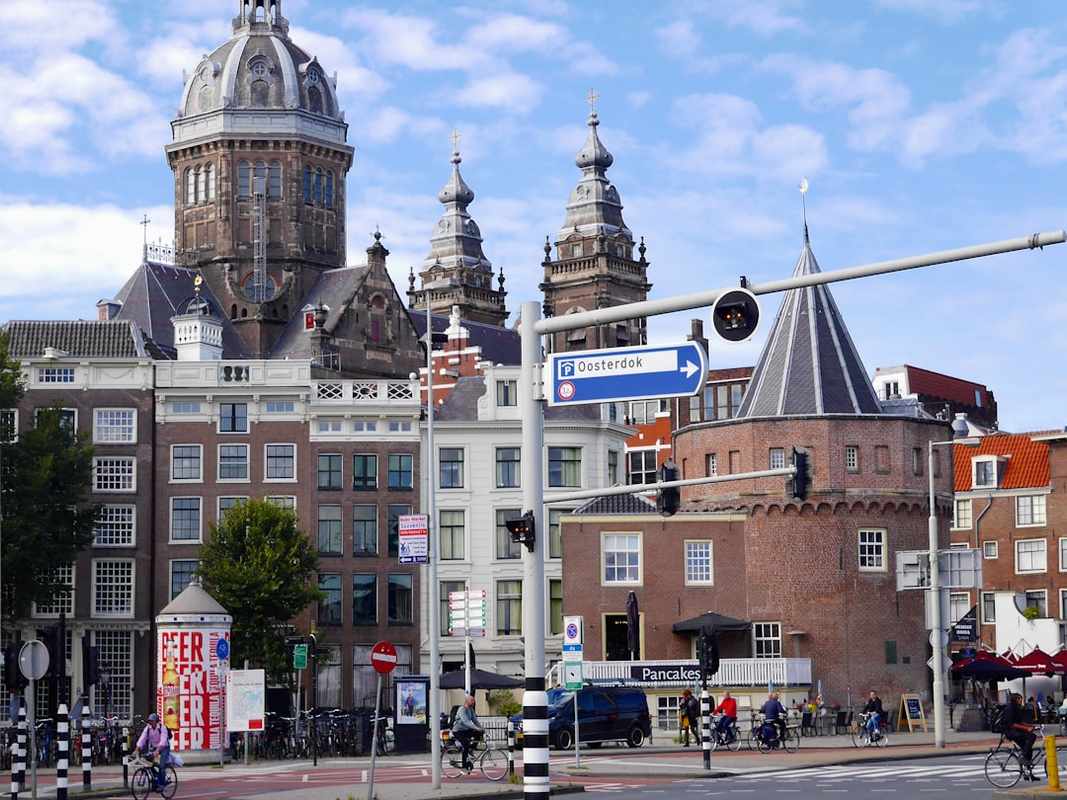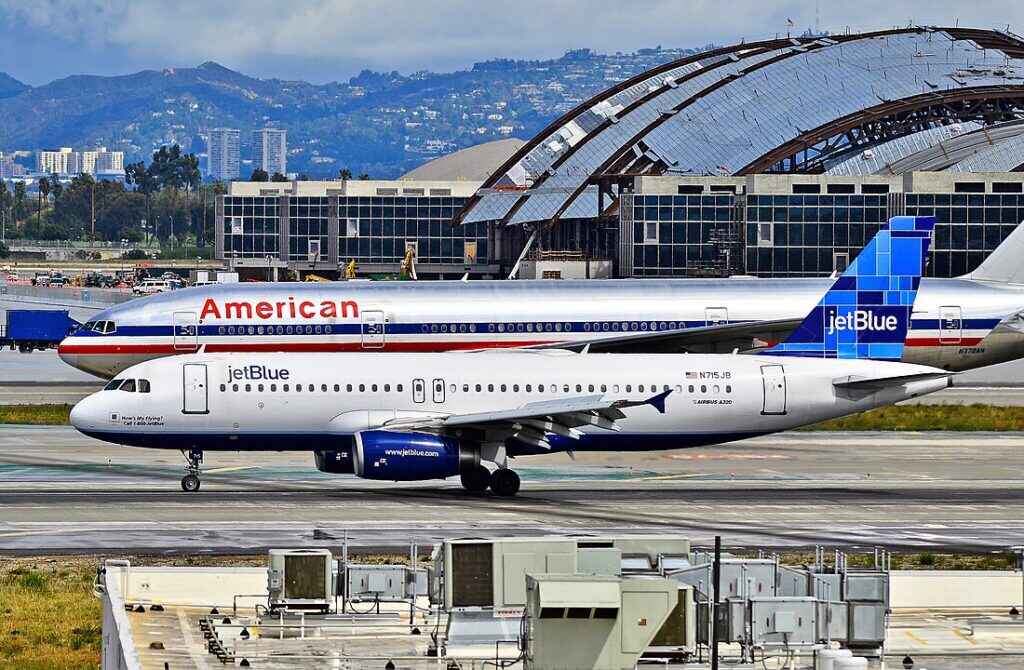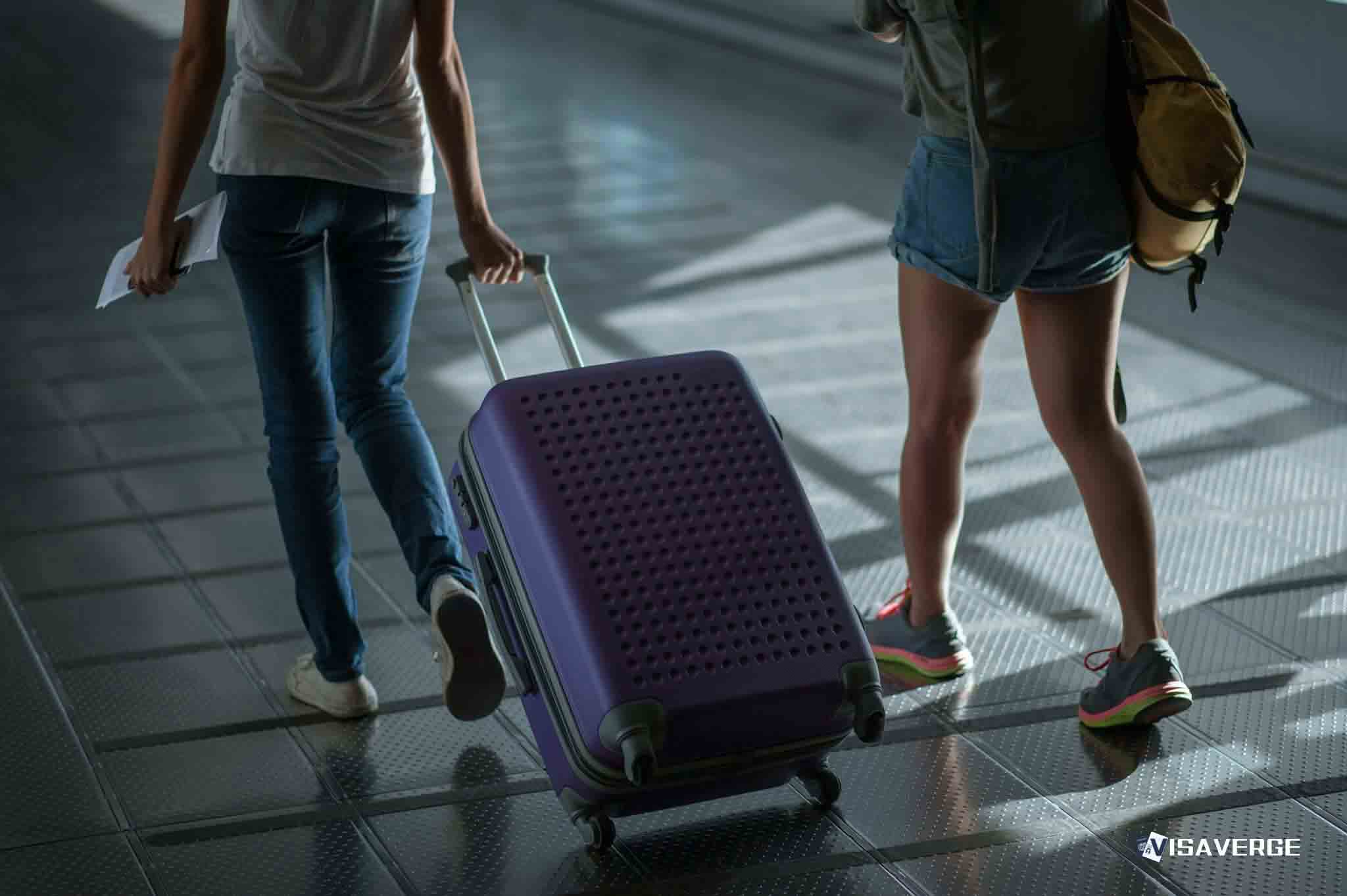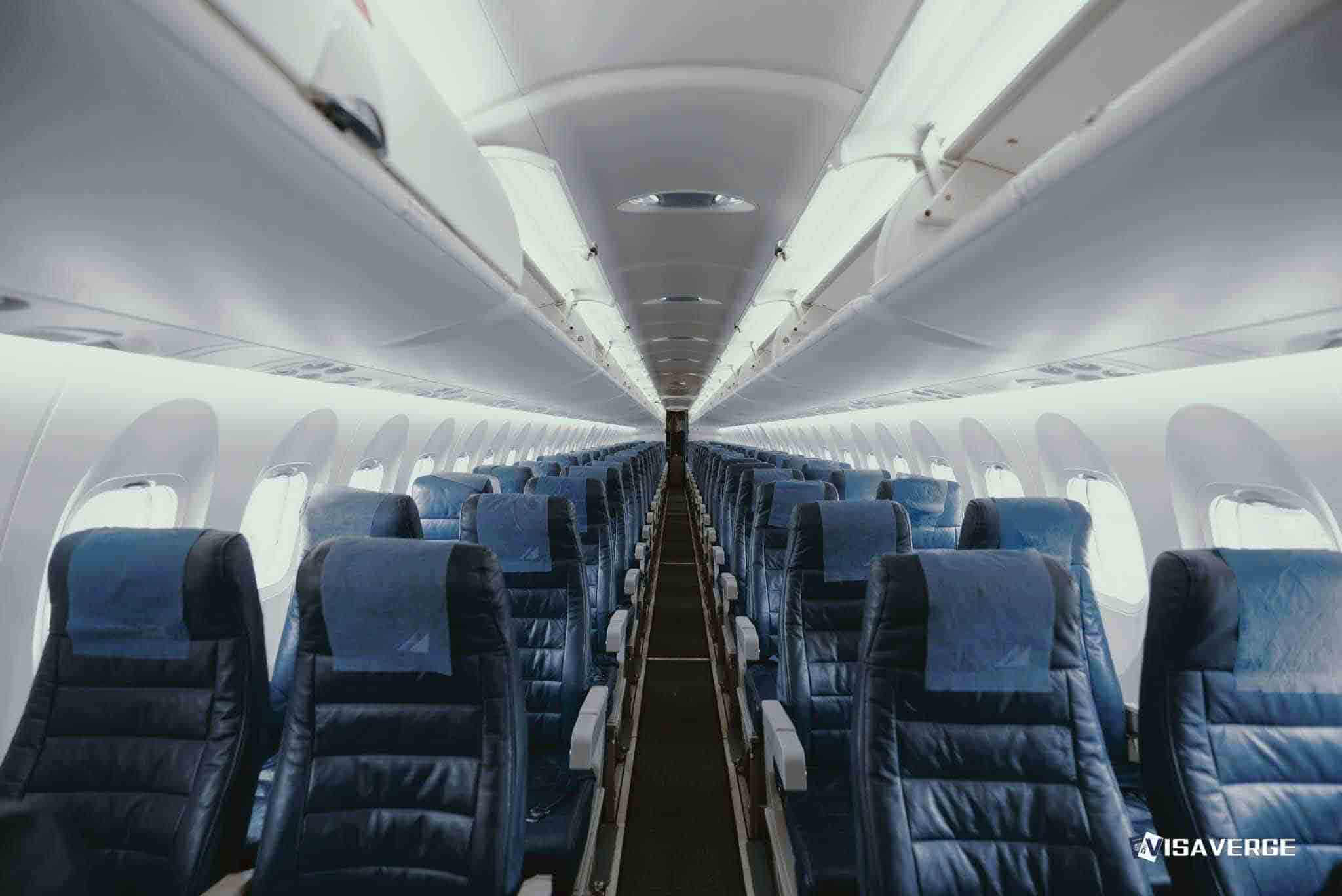Key Takeaways
• Amsterdam Schiphol Airport approved to raise fees 37% over three years starting April 1, 2025.
• By 2027, airlines will pay €15 more per departing passenger compared to 2024 rates.
• New fees incentivize quieter planes and reduce night flights, facing strong opposition from airlines.
Amsterdam Schiphol Airport Gets Approval for Major Fee Increase: What It Means for Airlines, Passengers, and the Dutch Economy
Amsterdam Schiphol Airport has received official approval from the Netherlands Authority for Consumers and Markets (ACM) to raise its airport charges by a total of 37% over the next three years. This decision, announced on June 4, 2025, follows months of debate and strong opposition from airlines and industry groups. The new fee structure, which started on April 1, 2025, will have a direct impact on airlines, travelers, and the broader Dutch economy.

This article explains what the ACM’s decision means, why the fee increase is happening, how it will affect different groups, and what to expect in the coming years. We’ll also look at the reactions from the International Air Transport Association (IATA), KLM, and other stakeholders, as well as the steps Schiphol is taking to address noise and environmental concerns.
What Happened: The Key Decision
On June 4, 2025, the ACM gave its final approval for Amsterdam Schiphol Airport’s new charging structure. This allows Schiphol to:
- Increase airport charges by 41% in 2025 (already in effect since April 1)
- Raise charges by another 5% in 2026
- Reduce charges by 7.5% in 2027
By 2027, airlines will pay about €15 more per locally departing passenger compared to 2024 rates. According to the International Air Transport Association, this means Schiphol’s charges will have doubled since 2019.
The ACM’s decision comes after a detailed review of complaints from airlines and industry groups, many of whom argued that the fee hike is too steep and could hurt the airport’s role as a major hub.
Why Are Charges Going Up?
Schiphol has explained that several factors made this large fee increase necessary:
- High inflation over the past three years, which raised costs for everything from fuel to wages
- Rising interest rates, making it more expensive to borrow money for improvements
- A legal requirement to recover losses from the COVID-19 pandemic years, when travel dropped sharply
- Plans to invest €6 billion in the airport over the next five years
Robert Carsouw, Chief Financial Officer of Royal Schiphol Group, said, “We will use the scope this provides to improve the airport in all areas. We are investing in improving the quality of service to passengers and airlines, sustainability, good working conditions for everyone working at Schiphol and a good balance with our environment.”
How the New Charges Work
The new charging structure is not just about raising fees across the board. Schiphol is also using the fee system to encourage airlines to use quieter, less polluting planes and to reduce night flights, which cause more noise for people living near the airport.
Key points of the new system:
- Higher fees for noisier aircraft
- Increased charges for night flights
- Lower rates for quieter aircraft
The ACM supported this approach, saying, “Night flights weigh much more heavily in the noise calculations because these flights cause more nuisance to local residents. Schiphol is therefore allowed to make these night rates relatively higher.”
Strong Opposition from Airlines and Industry Groups
The decision to approve the fee increase has drawn sharp criticism from airlines and industry groups. The International Air Transport Association (IATA), which represents many of the world’s airlines, was quick to voice its disappointment.
Rafael Schvartzman, IATA’s Regional Vice President for Europe, said, “It is very disappointing that the Regulator can consider a 33% cost increase to be reasonable. Schiphol is set to double its charges in just 8 years, while its services decline, and its capital spending fails to bring in much-needed improvements.”
IATA also warned that the fee hike, combined with uncertainty about the airport’s future capacity, could “damage the viability of Schiphol as a hub airport and the wider economy of the Netherlands.”
KLM, the Netherlands’ national airline, also criticized the decision, saying it would weaken the airline’s ability to compete with other European carriers.
Economic Impact: Jobs, Business, and Tourism
The aviation sector is a major part of the Dutch economy. According to IATA:
- Aviation supports more than 400,000 jobs in the Netherlands
- The sector contributes 3.6% to Dutch GDP
- Schiphol is a key hub for business, goods, and tourism
There are concerns that higher airport charges could lead to higher airfares, fewer flights, and reduced competitiveness for Dutch airlines and businesses. The Curaçao Chronicle reported that the fee hike may especially affect travelers between the Netherlands and Caribbean destinations, as airlines may pass on the extra costs to passengers.
How Schiphol’s Charges Are Set
Airport charges at Schiphol are regulated and set every three years, with oversight from the Netherlands Authority for Consumers and Markets. The last rates, set in 2021, did not take into account the high inflation and rising interest rates of recent years. This led to a €550 million shortfall in covering the airport’s operating costs.
To help soften the blow for airlines, Schiphol made a voluntary non-aviation contribution of €100 million to reduce the steepness of the increase. This was a significant jump from the originally proposed €26 million, after airlines pushed for more relief during consultations.
Noise Reduction and Environmental Measures
One of the most important parts of the new fee structure is its focus on noise reduction. Schiphol is using financial incentives to encourage airlines to use quieter planes and to avoid night flights, which are more disruptive for people living near the airport.
How the system works:
- Noisier aircraft pay higher fees
- Night flights are charged more
- Quieter aircraft get lower rates
The ACM agreed with this approach, saying it is fair to charge more for flights that cause more noise, especially at night.
However, the ACM did not approve Schiphol’s proposal to ban certain types of aircraft due to noise concerns. The regulator said Schiphol does not have the authority to introduce such a ban on its own. Schiphol disagreed with this decision, saying it sees the ban as an important way to reduce noise.
What Does This Mean for Passengers?
For travelers, the most direct impact of the fee increase is likely to be higher airfares. Airlines often pass on higher airport charges to passengers through ticket prices. This could make flying from Amsterdam Schiphol Airport more expensive, especially for routes where there is less competition.
Travelers to and from Caribbean destinations may be especially affected, as reported by the Curaçao Chronicle. Airlines serving these routes may have less room to absorb the extra costs, leading to higher prices for passengers.
There may also be changes in the number of flights and the types of planes used, as airlines look for ways to reduce costs and avoid higher fees for noisier or night-time flights.
Implications for Airlines
Airlines using Amsterdam Schiphol Airport will face much higher costs over the next three years. By 2027, the average charge per locally departing passenger will be €15 higher than in 2024. For airlines with many flights in and out of Schiphol, this adds up to millions of euros in extra costs each year.
Airlines that use quieter aircraft and avoid night flights may be able to reduce some of these costs, but the overall increase is significant. Some airlines may choose to reduce the number of flights they operate from Schiphol, switch to other airports, or pass the costs on to passengers.
KLM and other Dutch airlines have warned that the fee hike could hurt their ability to compete with airlines based at other European airports, where charges may be lower.
Broader Impact on the Dutch Economy
Schiphol is not just an airport; it is a major hub for business, trade, and tourism in the Netherlands 🇳🇱. Higher airport charges could have ripple effects throughout the economy:
- Businesses may face higher costs for travel and shipping
- Tourism could decline if airfares rise
- Jobs in aviation and related sectors could be at risk if airlines cut back on flights
According to analysis by VisaVerge.com, the decision to approve the fee increase comes at a time when the Dutch economy is still recovering from the effects of the pandemic. The aviation sector supports hundreds of thousands of jobs and is a key driver of economic activity.
What Happens Next?
While the ACM has approved the overall framework for the next three years, the final rates for 2026 and 2027 will be set over the next two years. These rates could change if there are new settlements or if outside factors, like inflation or interest rates, shift again.
Schiphol will continue to invest in improvements, with €6 billion planned over the next five years. These investments are aimed at improving service quality, making the airport more sustainable, and creating better working conditions for staff.
The aviation industry, including the International Air Transport Association, will be watching closely to see how the fee increase affects Schiphol’s role as a major European hub. There are concerns that higher charges could lead airlines to move flights to other airports, reducing Schiphol’s importance and hurting the Dutch economy.
Official Oversight and Further Information
The Netherlands Authority for Consumers and Markets is responsible for regulating airport charges and ensuring that they are fair and reasonable. The ACM reviews the airport’s financial situation, investment plans, and the impact of charges on airlines and passengers.
For more details on how airport charges are regulated in the Netherlands, you can visit the official ACM website.
Key Takeaways
- Amsterdam Schiphol Airport has received approval to raise charges by 37% over three years
- Airlines will pay about €15 more per departing passenger by 2027
- The increase is driven by high inflation, rising interest rates, pandemic losses, and planned investments
- Charges are higher for noisier aircraft and night flights, lower for quieter planes
- Airlines and industry groups strongly oppose the increase, warning of higher airfares and economic risks
- The Dutch economy could be affected if higher costs lead to fewer flights, less tourism, and lost jobs
- Final rates for 2026 and 2027 will be set in the coming years and could change
Practical Guidance for Stakeholders
For Airlines:
– Review your fleet and flight schedules to minimize exposure to higher charges, especially for noisier planes and night flights.
– Factor in the increased costs when planning routes and ticket prices.
– Stay engaged in consultations with Schiphol and the ACM to provide feedback on future rate changes.
For Passengers:
– Expect possible increases in ticket prices for flights departing from Amsterdam Schiphol Airport.
– Look for quieter, daytime flights, which may be less affected by the new fee structure.
– Monitor airline announcements for changes in routes or schedules.
For Businesses and the Dutch Economy:
– Prepare for potential increases in travel and shipping costs.
– Stay informed about changes in airport charges and how they may affect your operations.
For Policy Makers:
– Monitor the impact of the fee increase on the aviation sector and the wider economy.
– Consider measures to support competitiveness and protect jobs if higher charges lead to reduced activity at Schiphol.
Looking Ahead
The approval of Schiphol’s new charging structure marks a major change for one of Europe’s busiest airports. While the airport says the extra money is needed to recover from the pandemic and invest in improvements, airlines and industry groups warn that the higher charges could hurt the airport’s role as a global hub.
As the new fees take effect, all eyes will be on how airlines, passengers, and the Dutch economy respond. The next two years will be critical in shaping the future of Amsterdam Schiphol Airport and its place in the international aviation network.
For ongoing updates and detailed analysis, keep an eye on trusted sources like the International Air Transport Association and the Netherlands Authority for Consumers and Markets.
Learn Today
Amsterdam Schiphol Airport → The main international airport in the Netherlands, serving as a major European aviation hub.
Netherlands Authority for Consumers and Markets (ACM) → Dutch regulator overseeing fair market practices including airport charge approvals.
International Air Transport Association (IATA) → Global trade association representing airlines, monitoring industry standards and policies.
Airport charges → Fees airlines pay to airports for services like landing, parking, and passenger processing.
Noisier aircraft → Planes that produce higher noise levels and face increased charges under new fee rules.
This Article in a Nutshell
Amsterdam Schiphol Airport’s approved 37% fee hike by 2027 impacts airlines and passengers alike. While investments and environmental goals justify the increase, industry groups warn of higher airfares and economic risks, underlining a challenging future for this critical Dutch aviation hub.
— By VisaVerge.com













